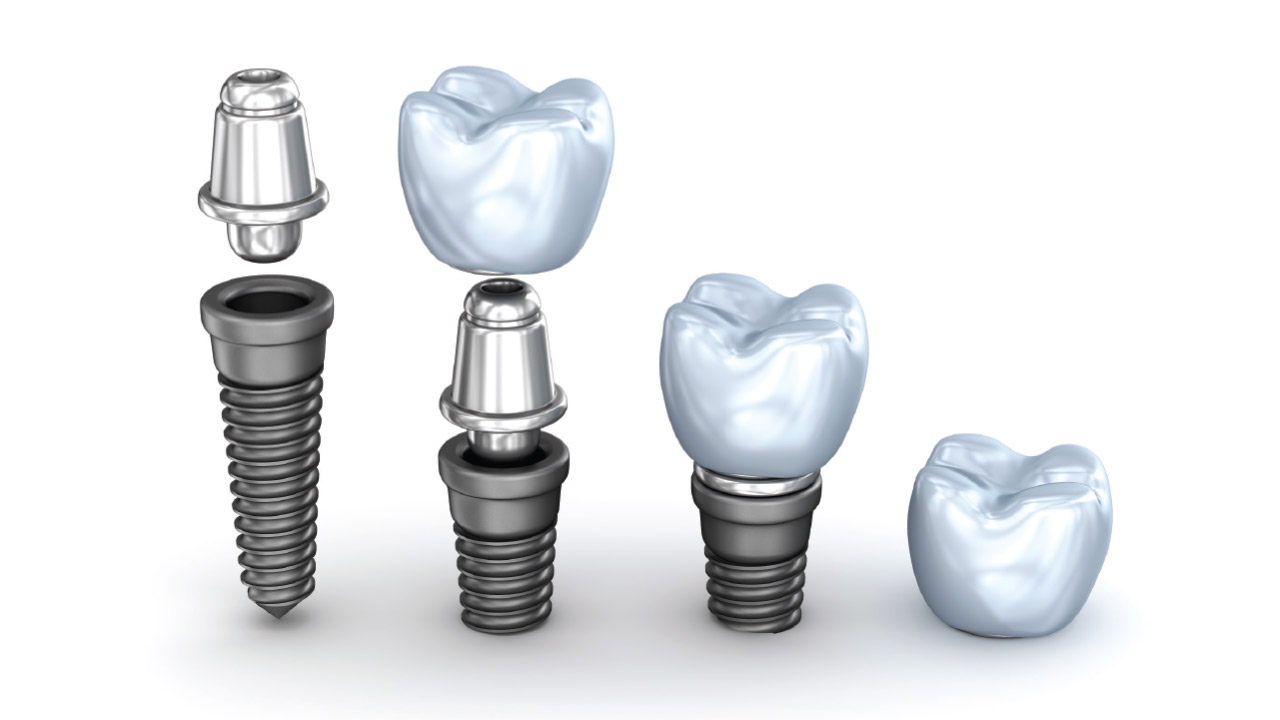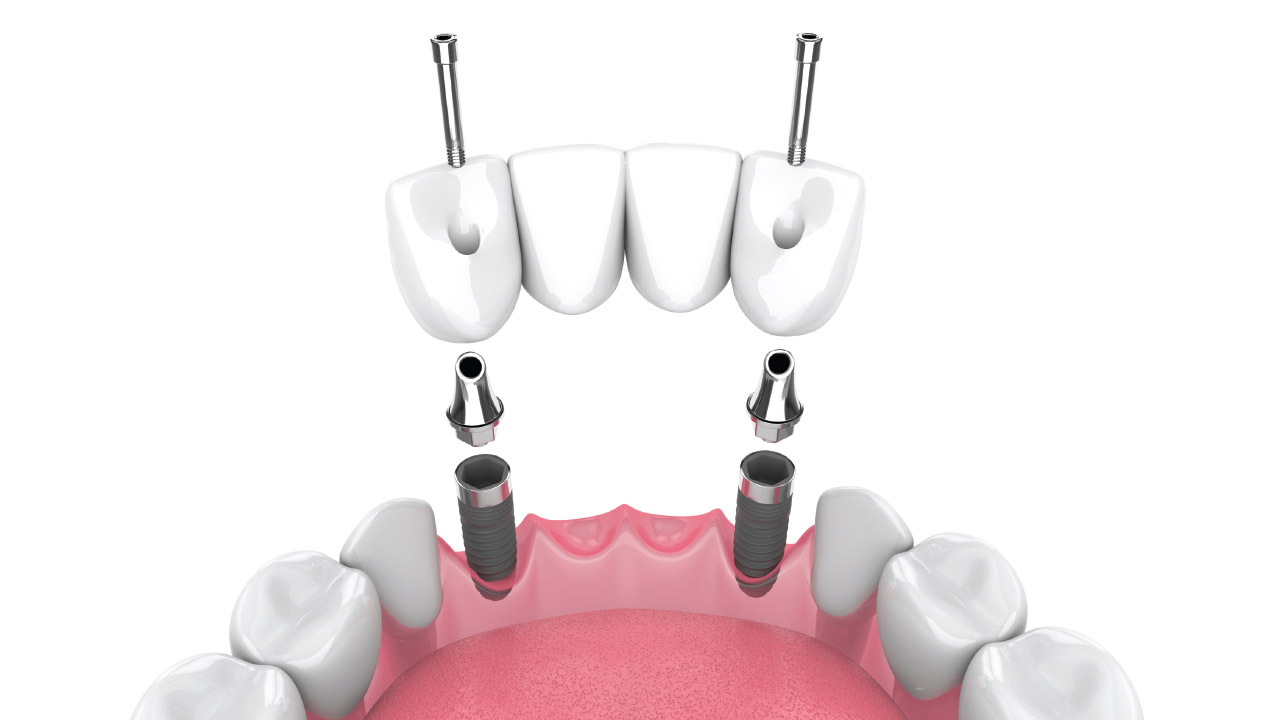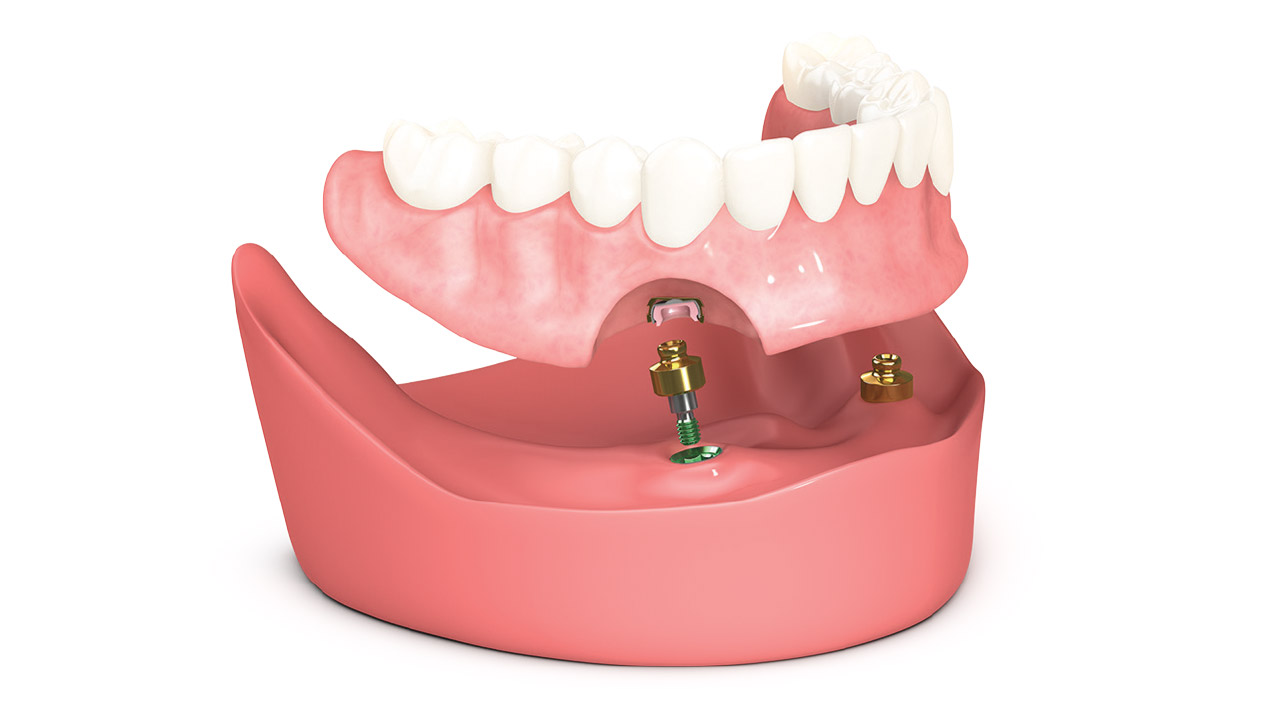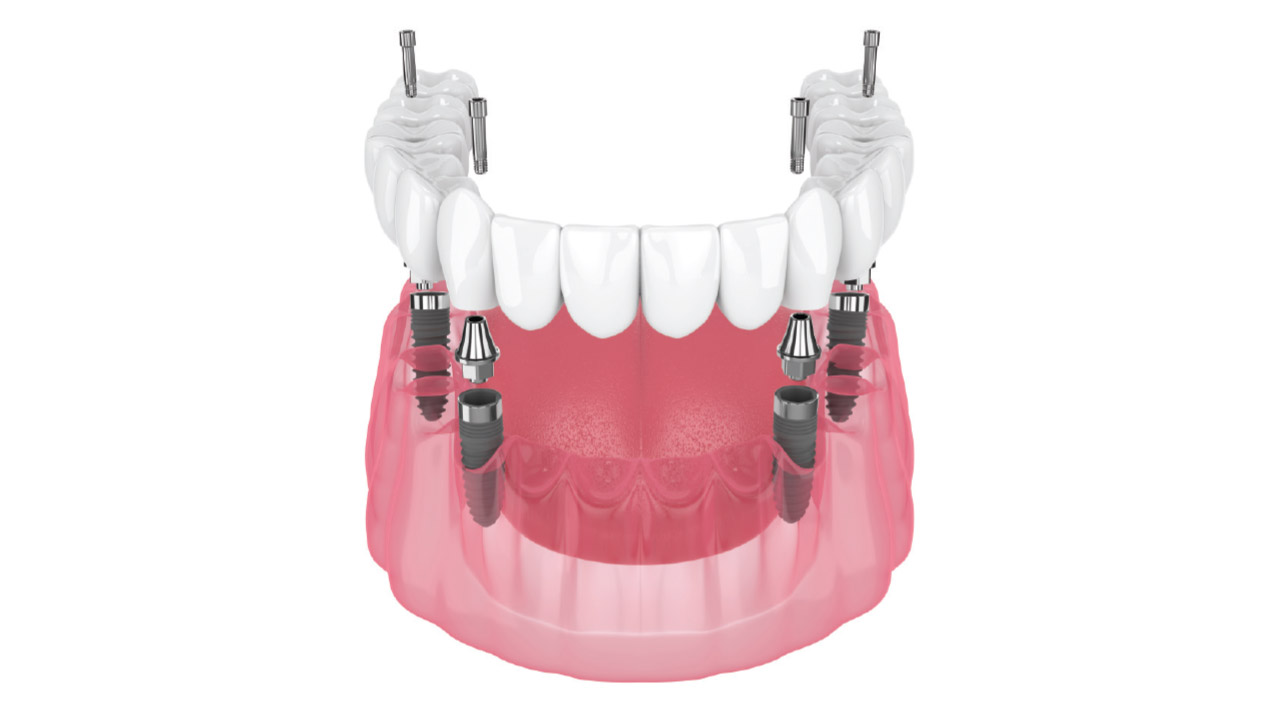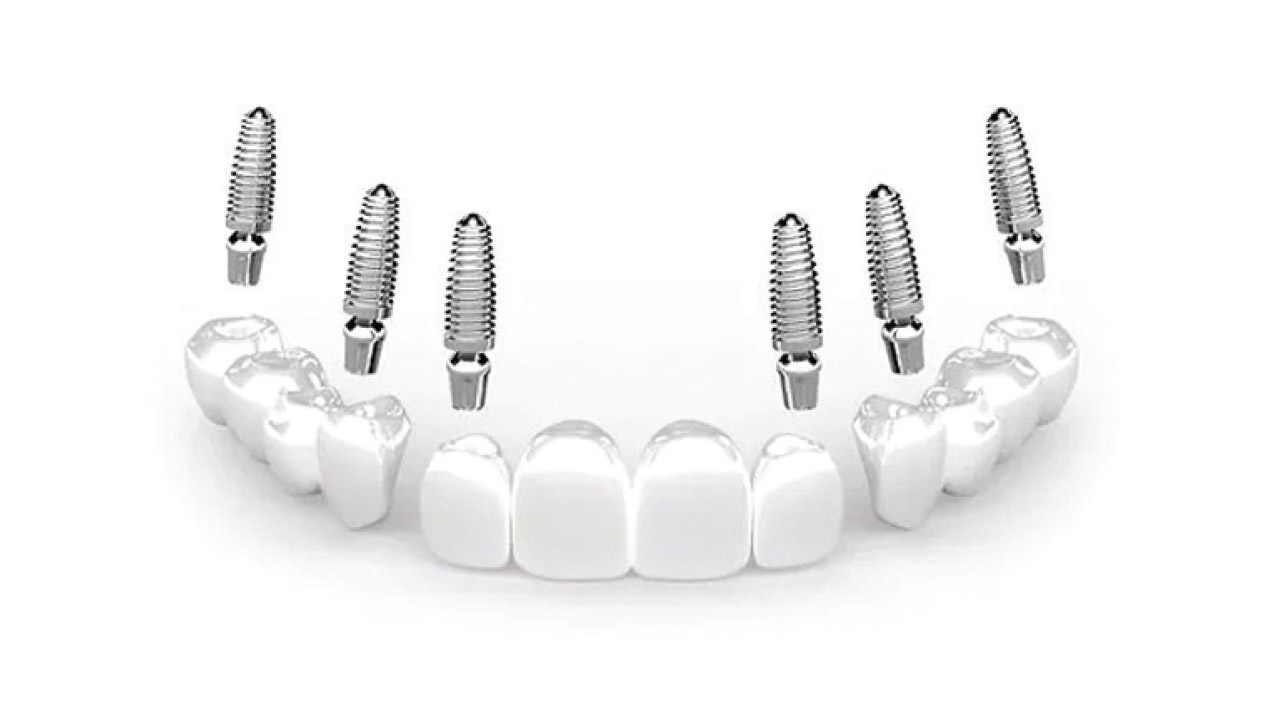Dental Implants
Cornerstone Dental
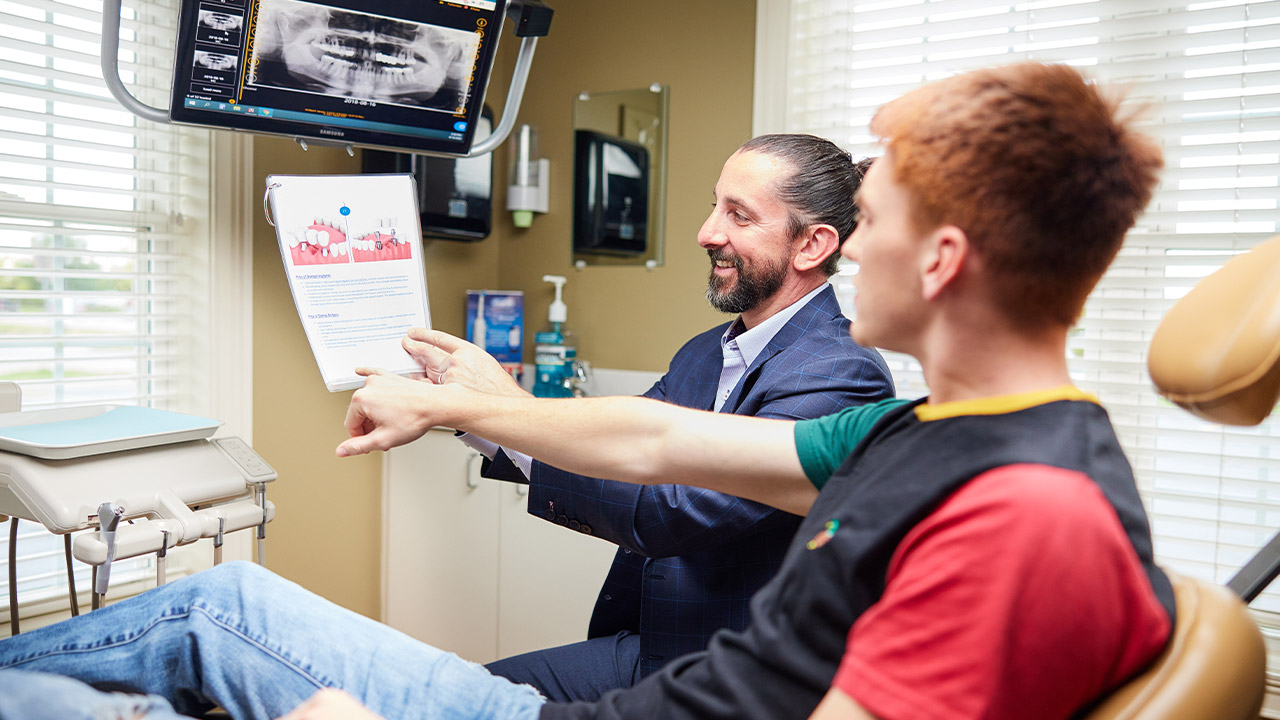
If you’ve experienced tooth loss, you know that simply speaking, chewing, eating, and smiling can cause feelings of self-consciousness. Thankfully, dental implants can help restore esthetics and function to your smile.
The good news is that bridges and dentures are no longer the only options you have if you have a missing tooth. Today, there are various types of dental implants that can complete your smile. With up to a 98% success rate, dental implants are a great option. Restore your smile with dental implants at Cornerstone Dental in Rochester, NY.
Designed to replace your extracted tooth roots, dental implants can provide a great foundation for a single tooth as well as multiple teeth. In addition, they can help prevent jawbone loss, shifting of teeth, as well as preserving the natural shape of your face while simultaneously rejuvenating your smile.
What are Dental Implants?
A dental implant is not a real tooth, but a prosthetic device used to replace missing teeth. Essentially, it is a small screw developed out of titanium that is placed directly into the jawbone. Implants can be used to help anchor a single tooth (cap or crown), a partial denture, or a full denture, giving the appearance of a natural smile.
Once the implant is incorporated into your bone, an abutment is used to attach these to the implant. Finally, the artificial tooth/teeth are fixed. A single tooth implant is comprised of three parts: the dental implant, the abutment and the artificial tooth.
What are the Benefits?
Most people think that dental implants are only meant to replace missing teeth. However, implants do much more than replace teeth. Implants can help maintain and strengthen jawbone structure, enhance or maintain tooth alignment, and provide for increased oral health. Dental implants can help minimize bone loss, protect against the development of crooked teeth by preventing the neighboring teeth from moving into the gap left behind by a missing tooth, and contribute/encourage you to maintain optimal oral health.
Like natural teeth, implants are anchored to the jawbone rather than resting on the jawbone. This will allow the patient to chew with force.
Lastly, dental implants are a hygienic, long-lasting option that can help to enhance personal appearance and improve your self-confidence.
The different types of dental implants include:
- Single-Tooth Dental Implant
- Fixed Implant Bridge
- Overdenture
- Hybrid Denture
- Full Arch Fixed Implant Bridges
While each dental implant restoration has its own nuances, the main process for all dental implants consists of the following steps:
- Damaged tooth removal
- Jawbone preparation (grafting) and sinus elevation, when needed
- Dental implant placement
- Bone growth and healing
- Abutment placement and artificial tooth placement
- Follow-up visits
Schedule a consultation today for comprehensive dental implant services in Rochester, NY.
Single-Tooth Dental Implant
Acting as long-term treatments for tooth loss, single-tooth dental implants are permanent fixtures rooted in the jawbone. Made of medical-grade titanium, this fixture is strategically placed into your jawbone. After a short 3 to 4-month period of healing, either analog molds or digital scans of your teeth and gums will allow for the fabrication of both the abutment and the crown to be attached to the implant. This crown mimics the appearance of the rest of your teeth. These crowns look and feel natural and only enhance your ability to speak and eat.
The Benefits of Single-Tooth Dental Implants
By focusing on only one tooth, a single-tooth dental implant allows you to leave your other natural teeth to function as they would normally. It will not affect their positioning or health in any way, so you can rest assured that your entire mouth will be healthy after a single-tooth implant.
Fixed Implant Bridge
A fixed dental implant bridge is a great option to replace multiple missing teeth if you do not want to utilize your natural teeth to support the crowns that hold the missing teeth or wear a removable partial denture. A fixed implant bridge utilizes two or more implants to help retain several crowns that are fused together.
The Benefits of Fixed Implant Bridge
Fixed implant bridges will allow your other natural teeth to function as they normally would. In addition, they are much more comfortable and do not move or trap food as readily as a removable partial denture while speaking, smiling, or eating, all of which are common issues among patients who have partial dentures.
Overdenture
An overdenture, also called an implant-retained denture, is a removable dental prosthesis that spans multiple consecutively missing teeth and is retained by two or more dental implants. An overdenture looks just like a standard denture, but the difference is that it is retained and stabilized by implants. These can be made to replace some or all of a patient’s missing teeth.
The Benefits of Overdentures
Most people find overdentures to be more comfortable than standard dentures. Overdentures also look better, don’t irritate your gums, and allow you to better eat the foods you enjoy. Additionally, overdentures fit better than standard dentures. This is because overdentures have a better “hold”. And lastly, overdentures give you increased functionality because they have a firmer grasp than standard dentures. That’s why people with overdentures find it easier to eat, speak, and perform other everyday tasks.
Hybrid Denture
A hybrid denture, also called an implant- supported denture, is a non-removable dental prosthesis that spans an entire arch (top or bottom) replacing all your teeth. A hybrid denture can look like a standard denture, but the difference is that it is entirely supported by implants. It cannot be removed without the help of an implant dentist.
The Benefits of Hybrid Dentures
Because hybrid dentures are screwed in directly to abutments that are screwed into dental implants, they offer better support. While other dentures can become loose or dislodged during normal activities such as talking or eating, hybrid dentures will not.
Full Arch Fixed Implant Bridges
A full arch fixed implant bridge system includes three separate fixed-implant bridges to replace teeth. These teeth are secured using six strategically placed implants. This option is similar to a hybrid denture, except the teeth are not all connected. This allows for better oral hygiene and creates a more ideal solution for maintenance should there ever be a need for a repair or an adjustment (you don’t have to remove all of the teeth, just the one segment).
The Benefits of Full Arch Fixed Implant Bridge
The Full Arch Fixed Implant Bridge offers a multitude of remarkable benefits, making it a transformative solution for individuals with missing teeth or severely damaged dentition. Unlike traditional dentures, this innovative dental treatment provides a permanent, natural-looking restoration that functions and feels like real teeth. With improved stability and durability, patients can enjoy unrestricted eating and speaking, restoring their confidence and quality of life. The fixed implant bridge also promotes jawbone health by stimulating bone growth and preventing deterioration, which is common in cases of tooth loss.
Frequently Asked Questions about Dental Implants at Cornerstone Dental
-
Dental implants are titanium posts that are surgically placed into the jawbone to act as artificial tooth roots. Once healed, they are topped with a crown that looks and functions like a natural tooth. They can also be used to support bridges when replacing multiple teeth as well as help secure dentures in place.
-
Most healthy adults with good oral hygiene and sufficient bone density are candidates for dental implants. A consultation and imaging at Cornerstone Dental can help determine if implants are right for you.
-
The cost of dental implants varies based on the number of implants needed and whether additional procedures like bone grafting are required. We offer personalized treatment plans and flexible payment options.
-
The implant procedure is done under local anesthesia and is generally well-tolerated. Most patients report minimal discomfort during recovery, which can be managed with over-the-counter pain relief.
-
With proper care, dental implants can last 15 years or longer. Regular brushing, flossing, and dental checkups help extend the life of your implant.
-
The entire process can take several months, including healing time between the placement of the implant and the final crown. Every patient’s timeline is a little different, and we’ll guide you every step of the way.
-
Yes! Many patients choose implants to stabilize their dentures or replace them altogether. Implant-supported dentures offer improved comfort and chewing ability.
-
Yes. Dental implants have a long track record of safety and success when placed by experienced professionals like our team at Cornerstone Dental.
-
Dental implants replace missing teeth by being inserted into the jawbone, without impacting surrounding teeth. In contrast, bridges rely on securing crowns to neighboring teeth for support. Additionally, implants help maintain bone structure, offering a more natural and lasting solution.
-
Yes, we offer third-party as well as in-house financing options to help make dental implants more affordable. While we are only in-network with Excellus Blue Cross Blue Shield and certain Cigna plans, our team is happy to work with other insurance providers by submitting claims on your behalf. Ask us about flexible payment solutions, including third party financing options such as Cherry, CareCredit, and Proceed Finance, during your consultation.
